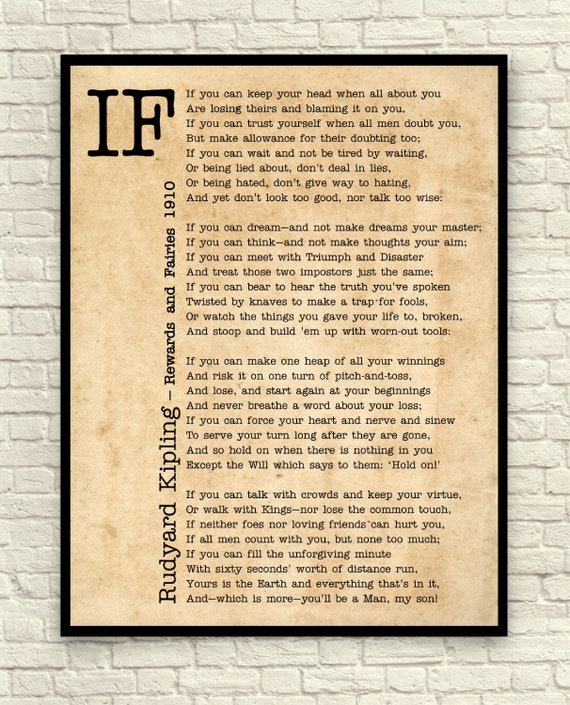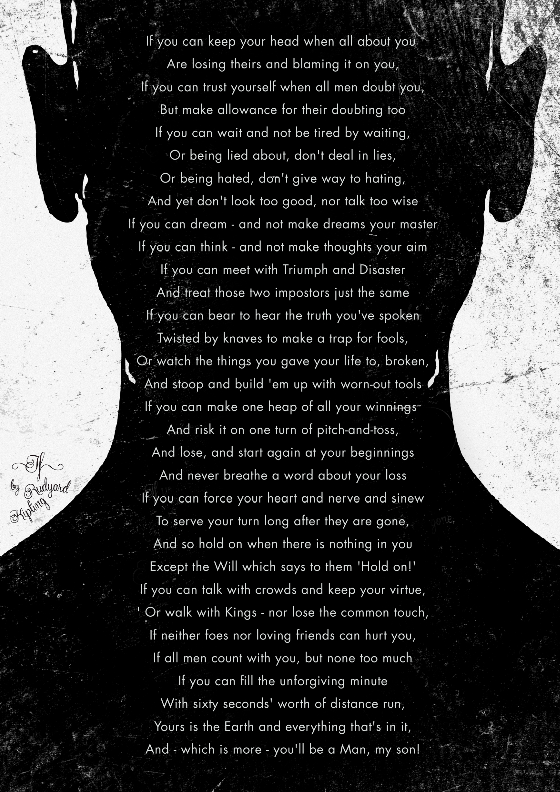

Or watch the things you gave your life to, broken,Īnd stoop and build 'em up with worn-out tools:

Twisted by knaves to make a trap for fools, If you can bear to hear the truth you've spoken If you can meet with Triumph and DisasterĪnd treat those two impostors just the same If you can think - and not make thoughts your aim If you can dream - and not make dreams your master, Or being hated, don't give way to hating,Īnd yet don't look too good, nor talk too wise: If you can wait and not be tired by waiting, If you can trust yourself when all men doubt you,īut make allowance for their doubting too If you can keep your head when all about you Kipling's wide popular appeal survives through other works, notably The Jungle Book (1894) the novel, Kim (1901), and Just So Stories (1902). Significantly, Kipling turned down many honours offered to him including a knighthood, Poet Laureate and the Order of Merit, but in 1907 he accepted the Nobel Prize for Literature. Rudyard Kipling achieved fame quickly, based initially on his first stories and poems written in India (he returned there after College), and his great popularity with the British public continued despite subsequent critical reaction to some of his more conservative work, and critical opinion in later years that his poetry was superficial and lacking in depth of meaning. In later life the deaths of two of his children also affected Kipling deeply. He was starved of love and attention and sent away by his parents beaten and abused by his foster mother and a failure at a public school which sought to develop qualities that were completely alien to Kipling. The beauty and elegance of 'If' contrasts starkly with Rudyard Kipling's largely tragic and unhappy life. Lines from Kipling's 'If' appear over the player's entrance to Wimbledon's Centre Court - a poignant reflection of the poem's timeless and inspiring quality.


'If' is perhaps even more relevant today than when Kipling wrote it, as an ethos and a personal philosophy. Kipling's 'If' contains mottos and maxims for life, and the poem is also a blueprint for personal integrity, behaviour and self-development. The poem 'If' is inspirational, motivational, and a set of rules for 'grown-up' living. Rudyard Kipling's (1865-1936) inspirational poem 'If' first appeared in his collection 'Rewards and Fairies' in 1909. If - rudyard kipling Rudyard Kipling's inspirational poem - 'If'


 0 kommentar(er)
0 kommentar(er)
